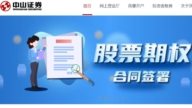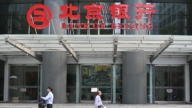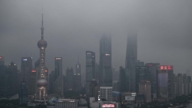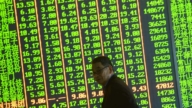【新唐人2013年04月10日讯】4月8号,中共国家主席习近平在“亚洲博鳌论坛”上发表演讲,他从四方面对中国未来的经济发展,向各国企业家做了表态和承诺,其中他说﹕中国提高经济增长速度不是不可能,但中国不想增长过快。习近平的这番言论引起媒体的关注。下面请看专家们是怎么说的。
习近平在“亚洲博鳌论坛”上发表演讲时说,中国经济增速完全有可能继续保持较高的水平,去年中国的经济增长是7.2%,比前几年有所降低,降低的因素,是中共当局主动控制速度。
美国南卡罗来纳大学艾肯商学院教授谢田:“如果经济增长对社会对民众是有利的话,他为什么不让它增长呢,如果伴随着经济增长,大众的收入财富也跟随着增加,所有的人都希望挣更多的钱,何乐而不为呢?国家领导人说出这样的话呢,也预示着中国经济的未来非常的不妙。”
美国“南卡罗来纳大学”艾肯商学院教授谢田还表示,中国目前这种经济增长模式如果继续下去的话,除了让贫富差距继续加大,让民怨更加沸腾,让环境变得越来越坏,没有任何好处。
谢田:“中国以前的所谓增长速度不仅仅是浪费型的,而且是破坏型的,破坏着环保,是浪费型的,是在重复建设,是中共掠夺中国人们财富这样一个过程,在这个过程中,让共产党的官员(们)私饱中囊,中国百姓还不得不面对通货膨胀畸形发展带来的痛苦。”
谢田指出,中共以破坏环境为代价带来的所谓高速增长,已经使中国的水、空气和土壤,污染到不适合人类居住的程度,这种毁灭性的经济在增长,是人类的耻辱。
北京师范大学MBA导师段绍译认为,中国的经济增长速度快,是和以前低水平的起点比较,实际上,增长的绝对数量还非常有限,而有一些增长实际上是一种浪费。
北京师范大学MBA导师段绍译:“比方说,2008年政府投了4万亿的经济刺激计划,4万亿投给的都是没有效益的国有企业,造成了投资性的经济增长,建出来的项目很多都没有效益,其实是对资源的浪费,表面上增长了,但对社会的财富,对未来的发展是有损害的。”
习近平还说,中国发展是惠及世界的,是互利双赢的关系,中国发展得益于同各国的合作,也为世界发展做出了贡献。
而谢田指出,正当的经济发展和贸易,有互利双赢的一面,但也存在着互相竞争的关系,特别是当一方采取不公正的手段时,也会给另一方带来损失。
谢田:“我们知道,比方在美国,中国以破坏环境为代价,以剥削和盘剥农民的廉价劳动力为代价制造出来的产品,在倾销推向美国市场的时候,造成美国很多企业搬到中国去,实际上导致美国的失业率的上升。”
据日本《每日新闻》2月28号报导,中国日益严重的空气污染,促使日本对本国空气质量恶化更加担忧。前段时间中国北方出现的雾霾天气,导致日本西部多地空气中的PM2.5值超标。
另外,美国《纽约时报》2月20号报导说,中国在跨国河流上建设巨型水坝,引发印度及东南亚邻国的不满,他们担心,中国发展模式对环境和社会造成的负面代价,会由这些下游国家承担。而未来数十年,水资源引发的冲突,很可能成为亚洲各国外交面临的最严峻挑战之一。
据中共中央对外联络部网站透露,俄罗斯也十分关切黑龙江流域的工业生产污染,对它们境内城镇用水的影响。
根据“互动百科”记载,中国在煤炭开发、利用、运输等过程中产生的污染,对环境造成的严重影响,已引起国人和周边国家的关注。
谢田还指出,中国很多贸易行为的不受规范,和共产主义意识形态的输出,也使其他国家对中国的发展,以及与中国合作时,保持谨慎态度。
采访编辑/刘惠 后制/李智远
Xi Jinping: China Restrains Economic Growth Rate
On April 8, the Chinese Communist Party (CCP) president
Xi Jinping gave a speech on the Boao Forum for Asia.
Xi spoke of China’s future economic development.
He highlighted that China is able to have a higher rate of
economic growth, but it has intentionally restrained it.
Xi Jinping’s talk has aroused strong media attention.
Let’s see our report.
In his speech, Xi said that China is capable of
keeping up a high economic growth rate.
In 2012, China’s economic growth was at 7.2%,
a little lower than it was in previous years.
Xi said that this was because the CCP proactively
controls the speed.
(Professor, University of South Carolina-Aiken) Xie Tian:
“If economic growth was good for society and
the public, why hasn’t continuous growth been allowed?
If economic growth can increase the income of the masses,
which has been a long-term pursuit, why hasn’t it happened?
If he said it as a state leader, it spells out that
China’s future economy is dire.”
Xie Tian continues, if China’s existing growth model
continues, the result will be negative——
a wider rich-poor gap, more seething civilian resentment,
as well as a worse environment will be the result.
Xie Tian: “China’s official high growth has been based on
waste of resources, and environmental damage.
It’s actually a redundant construction,
a way for the CCP to plunder Chinese citizens’ wealth.
During this process,
CCP officials have lined their pockets.
But ordinary folks have to suffer pain which is induced
by inflation and warped economic development.”
According to Xie Tian, the environment driven
high growth has polluted water, air and soil in China.
This pollution has directly endangered people’s survival.
He says that such a devastating result of growth is
a disgrace to humanity.
Duan Shaoyi, Tutor for MBA students at Beijing
Normal University, comments.
He says the high speed of China’s economic growth
due to its starting point was very low.
The absolute figure of growth was rather limited, and some
of this growth was actually a kind of waste, says Duan.
Duan Shaoyi: “For example, in 2008, the government
staged a 4-trillion yuan economic stimulus plan.
All of this money was given to unprofitable
state-owned enterprises.
As a result, it created an investment-driven growth.
Lots of construction projects were actually wasting resources.
It was an ostensible growth, but it has damaged
social wealth and future development.”
Xi Jinping stated that China’s development is in the
world’s interest, resulting in a win-win situation for all.
According to Xi, China’s growth has benefited from
worldwide cooperation, which in turn has contributed to the world economy.
Xie Tian indicates that in normal economic development
and commercial trade, besides a win-win situation,
there exists mutual competition.
In particular, when one side uses unfair means,
this may cause losses on the other side.
Xie Tian: “For instance, cheap made-in-China products are
the cause of environmental destruction and labor exploitation.
The dumping of them into the U.S. market has forced
many US companies to move to China.
This has actually led to a rise in unemployment in the U.S..”
In February, Japan’s Mainichi Shimbun newspaper
reported that in facing China’s growing air pollution,
Japan worries about the deterioration of its native air quality.
Smog and haze in northern China has increased
the PM2.5 level in some western Japan areas.
According to New York Times’ report dated Feb. 20,
“India and other nations are worried about
China’s ‘hydro-supremacy’,
particularly plans to build huge dams
on rivers that flow across international borders.”
But “nations downstream would bear
the environmental and social costs.”
“Such conflicts, with the potential for ‘water wars,’”
may be “among the most delicate challenges to Asian diplomacy in coming decades.”
Information on the official website of the International Dept.
of the CCP Central Committee shows that
Russia is concerned about the effect of the industrial
pollution in Heilongjiang and surrounding areas
in particular the effect the pollution has on
domestic drinking water in these areas.
Records of the Hudong Encyclopedia show that China’s
pollution generated in coal production, utilization, and
transportation has seriously affected the environment.
This fact has alerted the Chinese people and
its neighboring nations.
Xie Tian adds that China has not always
observed rules in its commercial trade.
In addition, the CCP authorities have
intentionally spread communism overseas.
All of this has made other nations wary of
China’s growth and of their cooperation with China.






























